Rajath Kumar
Tiny-CRNN: Streaming Wakeword Detection In A Low Footprint Setting
Sep 29, 2021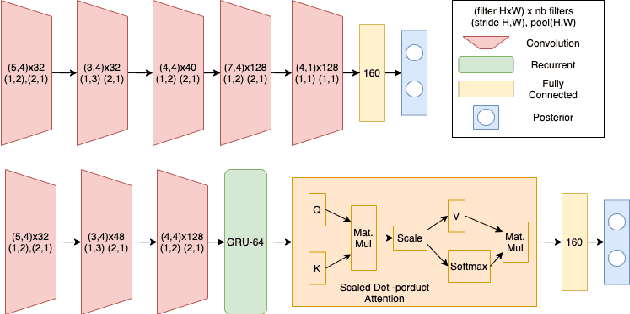
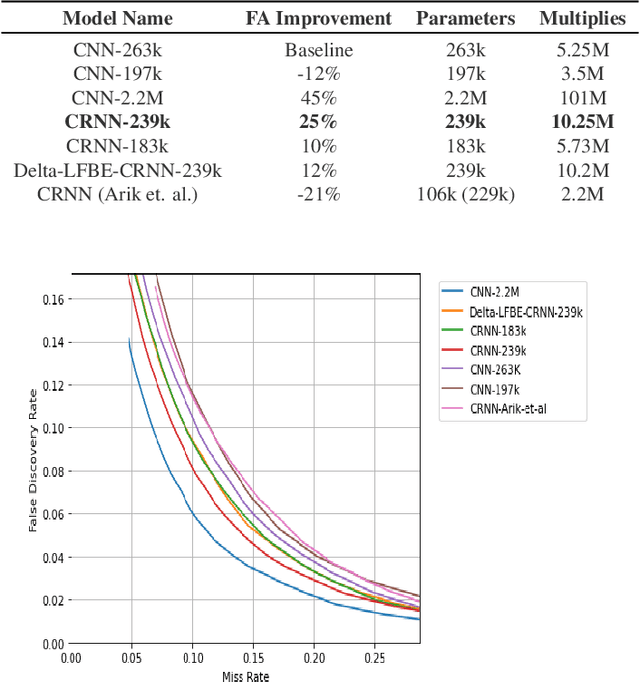
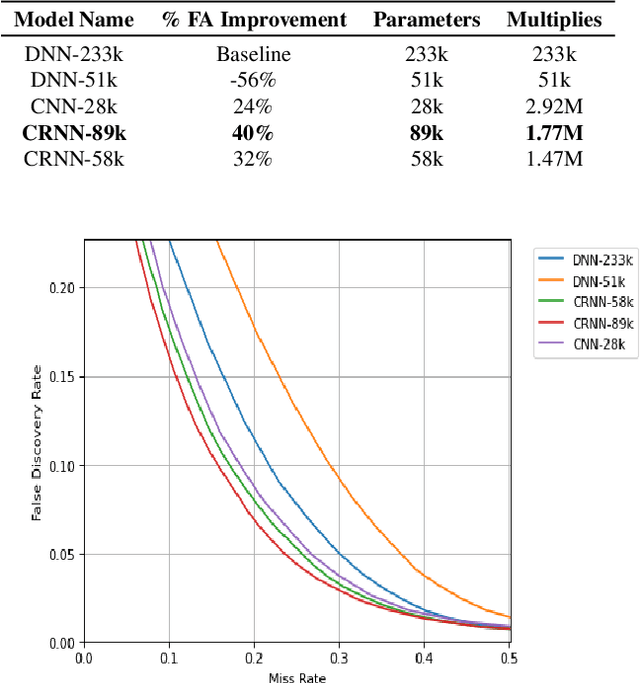
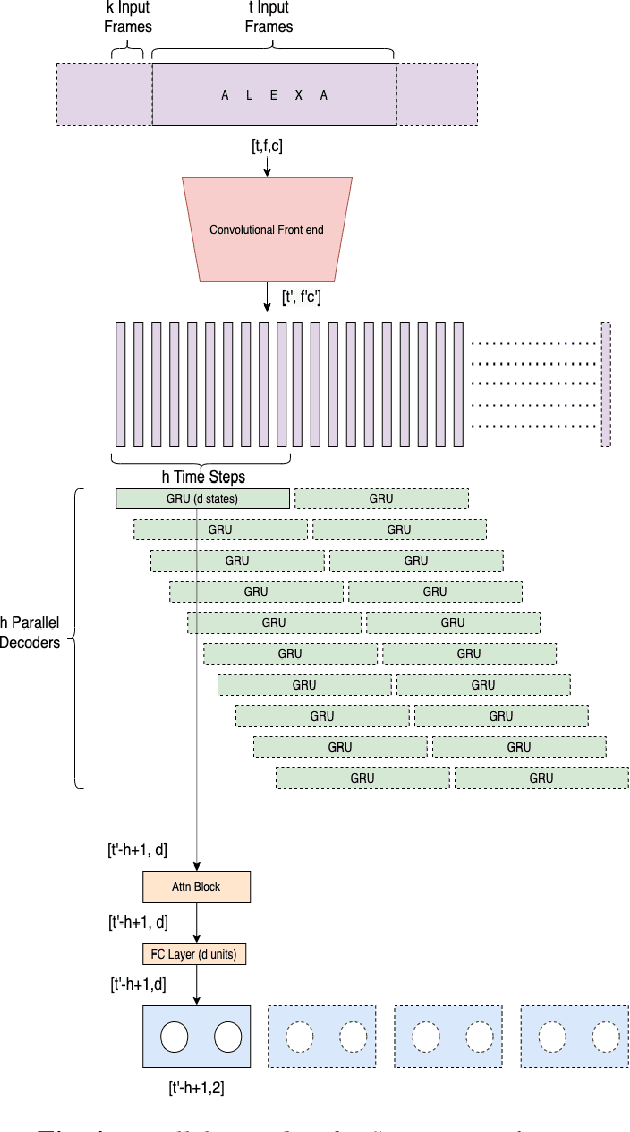
Abstract:In this work, we propose Tiny-CRNN (Tiny Convolutional Recurrent Neural Network) models applied to the problem of wakeword detection, and augment them with scaled dot product attention. We find that, compared to Convolutional Neural Network models, False Accepts in a 250k parameter budget can be reduced by 25% with a 10% reduction in parameter size by using models based on the Tiny-CRNN architecture, and we can get up to 32% reduction in False Accepts at a 50k parameter budget with 75% reduction in parameter size compared to word-level Dense Neural Network models. We discuss solutions to the challenging problem of performing inference on streaming audio with this architecture, as well as differences in start-end index errors and latency in comparison to CNN, DNN, and DNN-HMM models.
Multi-task Learning for Continuous Control
Feb 03, 2018
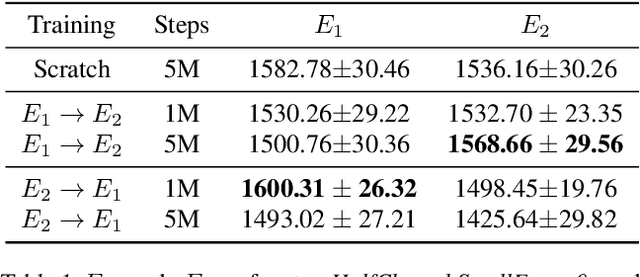

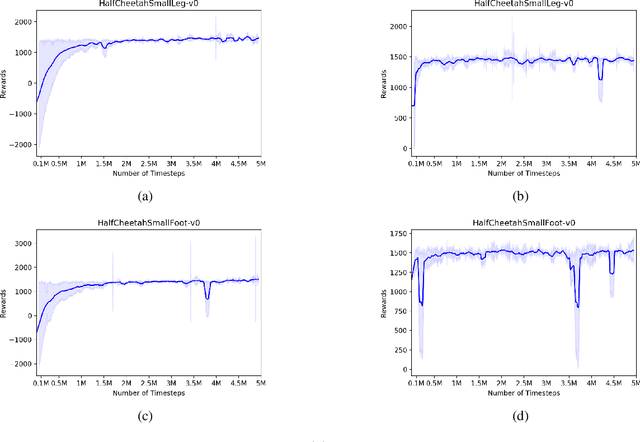
Abstract:Reliable and effective multi-task learning is a prerequisite for the development of robotic agents that can quickly learn to accomplish related, everyday tasks. However, in the reinforcement learning domain, multi-task learning has not exhibited the same level of success as in other domains, such as computer vision. In addition, most reinforcement learning research on multi-task learning has been focused on discrete action spaces, which are not used for robotic control in the real-world. In this work, we apply multi-task learning methods to continuous action spaces and benchmark their performance on a series of simulated continuous control tasks. Most notably, we show that multi-task learning outperforms our baselines and alternative knowledge sharing methods.
 Add to Chrome
Add to Chrome Add to Firefox
Add to Firefox Add to Edge
Add to Edge